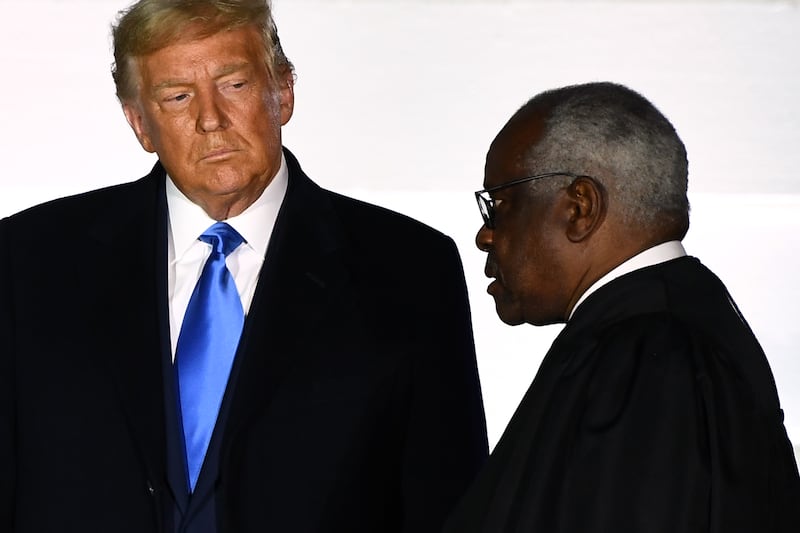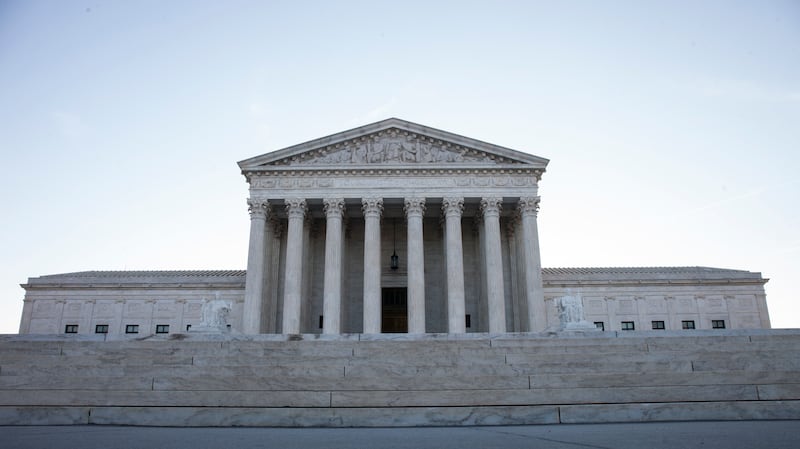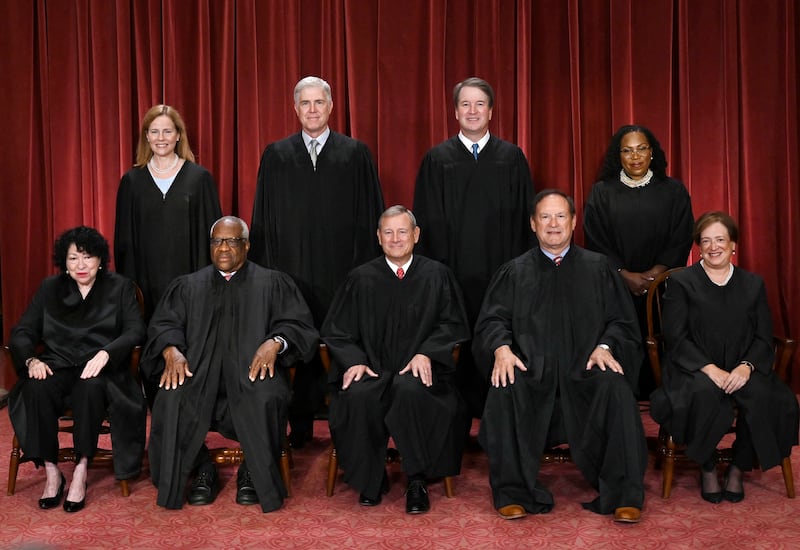A former law clerk to Justice Clarence Thomas has warned that the Supreme Court’s interpretation of the Constitution “appears to be moving toward a sweepingly pro-president position.”
In an essay for the NYU Law Democracy Project, originalist legal scholar and University of Virginia School of Law professor Caleb Nelson argued that the Constitution’s text and historical context give Congress wide latitude to organize the executive branch and to impose limits on the president’s power to remove officials.
It’s an issue that is already front and center on the court’s docket, and one that Nelson warns “can do lasting damage to our norms and institutions” in the case of “a President bent on vengeful, destructive and lawless behavior.”

In September, the Supreme Court issued a 6–3 emergency order allowing President Donald Trump to remove Federal Trade Commission leader Rebecca Kelly Slaughter from her position. Slaughter, who was appointed to the FTC in 2018 during Trump’s first administration, argued that she was “illegally” fired in a move that violated “clear Supreme Court precedent.”
The Court will hear arguments in the case in December, when it will consider whether to overturn the 1935 precedent that limits the president’s ability to remove independent agency regulators over policy disagreements.
“It is true that Article II vests the executive power in the President,” Nelson, who clerked for Thomas from 1994 to 1995, wrote in his article. “But Congress is in charge of creating offices within the executive branch, and the Constitution does not give the President unilateral power to dictate who will fill those offices or what their authorities and duties will be.”
While the current Supreme Court has repeatedly sided with the Trump administration since the president returned to office in January, Nelson hopes “the Justices will not act as if their hands are tied and they cannot consider any consequences of the interpretations that they choose” when deciding cases like Slaughter’s.
However, The New York Times’ Supreme Court reporter Adam Liptak believes “There is little question that the court will side with the president. Its conservative majority has repeatedly signaled that it plans to adopt the ‘unitary executive theory,’ which says the original understanding of the Constitution demands letting the president remove executive branch officials as he sees fit.”
Still, Nelson’s article has elicited a massive response from the legal community.

“Bombshell!” was constitutional law scholar and professor William Baude’s immediate reaction to Nelson’s commentary. “Caleb Nelson, one of the most respected originalist scholars in the country, comes out against the unitary executive interpretation of Article II,” he wrote.
Nelson’s originalist understanding of the Constitution has led to his opinions previously being cited in more than a dozen Supreme Court decisions. Thomas himself referenced his former clerk’s work six times in a 2023 concurring opinion, while Justice Brett Kavanaugh named Nelson among a small group of “respected scholars” in a concurring opinion last year.
Article II of the U.S. Constitution states that “[t]he executive Power shall be vested in a President of the United States of America.” The “unitary executive interpretation” referenced by Baude is based on the “unitary executive theory,” which holds that the president has sole authority over the executive branch, including the power to dismiss executive branch officials at will.

“If most of what the federal government currently does on a daily basis is ‘executive,’ and if the President must have full control over each and every exercise of ‘executive’ power by the federal government (including an unlimitable ability to remove all or almost all executive officers for reasons good or bad), then the President has an enormous amount of power,” Nelson wrote.
“If a highly respected originalist scholar like Professor Nelson, on whom the court relies frequently, denies that originalism supports the unitary executive theory,” NYU law professor Richard H. Pildes told The New York Times, “that inevitably raises serious questions about an originalist justification for the court’s looming approach.”
Nelson concluded his article by issuing a warning about how upcoming decisions could impact the future.
“The current Supreme Court may likewise see itself as interpreting the Constitution for the ages, and perhaps some of the Justices take comfort in the idea that future Presidents will not all have the character of Donald Trump,” Nelson wrote. “But the future is not guaranteed; a President bent on vengeful, destructive, and lawless behavior can do lasting damage to our norms and institutions.”
The post Clarence Thomas Clerk Issues Dire Warning About Supreme Court’s Agenda appeared first on The Daily Beast.




